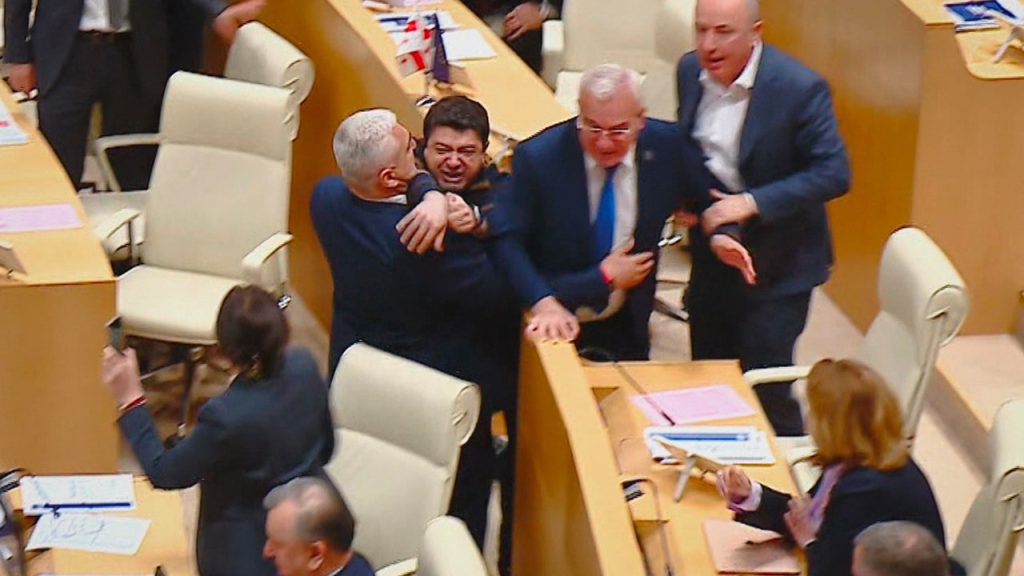The Georgian parliament has approved a controversial bill requiring media organizations and nonprofits to register as “pursuing the interests of a foreign power” if they receive more than 20% of their funding from abroad. This bill has sparked weeks of mass protests, with critics seeing it as a threat to democratic freedoms and the country’s aspirations to join the European Union. Despite this opposition, the governing parliamentary party has a majority sufficient to override a presidential veto. Georgian President Salome Zourabichvili has vowed to veto the bill, but it remains to be seen if her efforts will be successful.
The bill has been likened to Russian suppression of independent media, leading to protests across the country. The opposition has labeled it as “the Russian law” due to its similarities to legislation in Russia that cracks down on media and activists critical of the Kremlin. European Council President Charles Michel has also emphasized the importance of respecting democratic principles for Georgia if they wish to join the European Union. The bill closely resembles one that was withdrawn last year following public pressure, indicating a pattern of pushback against similar legislation.
Protests against the bill have continued for weeks, with demonstrators clashing with police and calling for the protection of democratic values and freedoms. Despite opposition from President Zourabichvili, who has pledged to veto the bill, the governing Georgian Dream party has the necessary majority to override any such veto. Demonstrations have been met with force from law enforcement, with reports of violence against protesters and opposition members. The protests have been described as a unified effort to safeguard Georgia’s European future and resist Russian influence.
The bill’s passage through parliament was not without controversy, as lawmakers engaged in a heated debate that was interrupted by a brawl. Members of the opposition accused the governing party of organizing mobs to attack their supporters, while the ruling party accused the opposition of using the protests for their own political gain. Despite these tensions, the bill ultimately garnered enough support to pass, with 84 lawmakers voting in favor and 30 against. The next step is for the bill to be sent to President Zourabichvili for approval or veto within the next 14 days.
The ongoing protests in Georgia highlight the deep divide within the country over issues of democracy, foreign influence, and political freedoms. The passage of the bill has raised concerns about the government’s commitment to democratic principles and respect for freedom of speech. The protests have also shed light on the power dynamics within the Georgian political landscape, with tensions escalating between the ruling party and the opposition. As the country navigates the aftermath of this legislation, the future of Georgia’s democratic identity and European aspirations remains uncertain.













